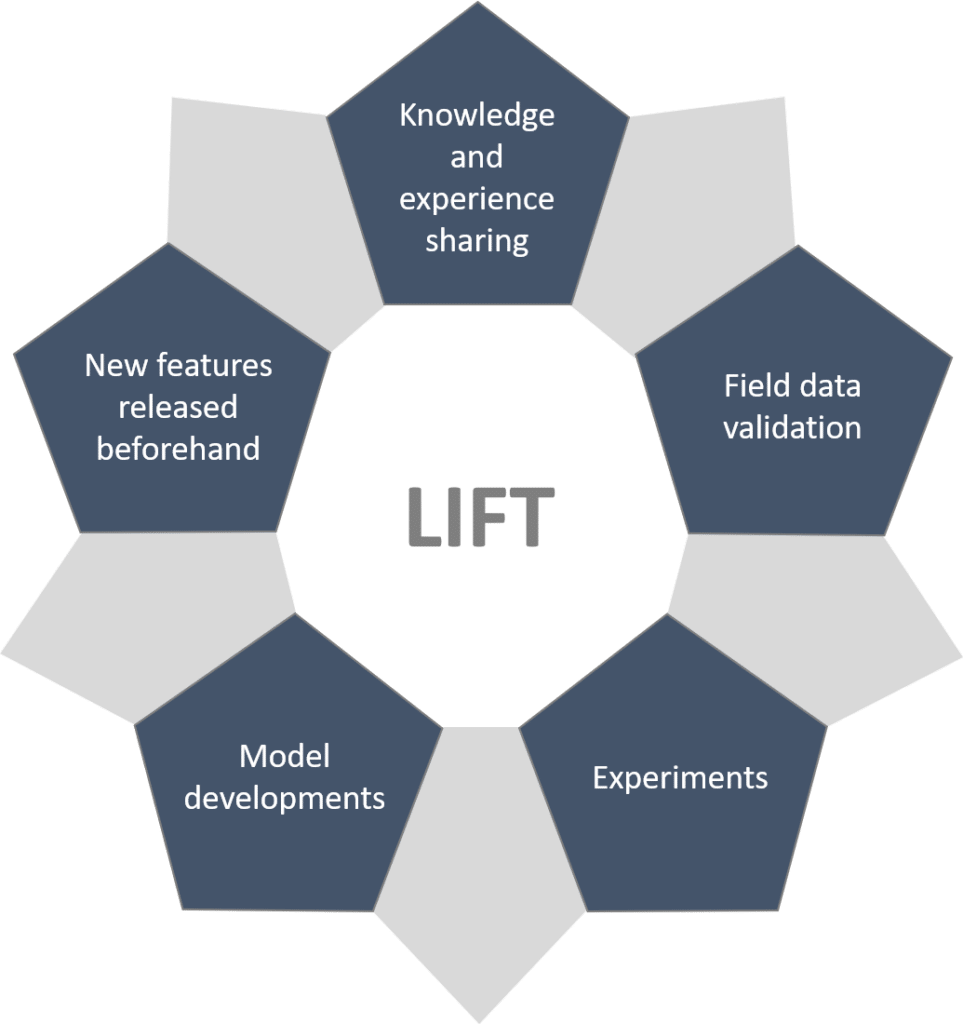Menu
LedaFlow Improvements to Flow Technology (LIFT) is a joint industry project to identify areas for model improvement and ensure the industrial functionality and quality of LedaFlow.
Managed by KDI with support by SINTEF for experimentation and code improvements the project has entered its fourth phase (LIFT IV) with four operator partners: ConocoPhilips, Total, ExxonMobile and Woodside.

Participants
ConocoPhillips, ExxonMobil, TotalEnergies, Woodside
Project period
2024-2026
Participants
ConocoPhillips, ExxonMobil, AkerBP, TotalEnergies, Woodside
Project period
2021-2023
Participants
Chevron, ConocoPhillips, ENI, Lundin, TOTAL, Woodside
Project period
2016 – 2020
Participants
Chevron, ConocoPhillips, ExxonMobil, Shell, Statoil, TotalEnergies, Woodside
Project period
2013 – 2016
Fueled by BENZIN AS